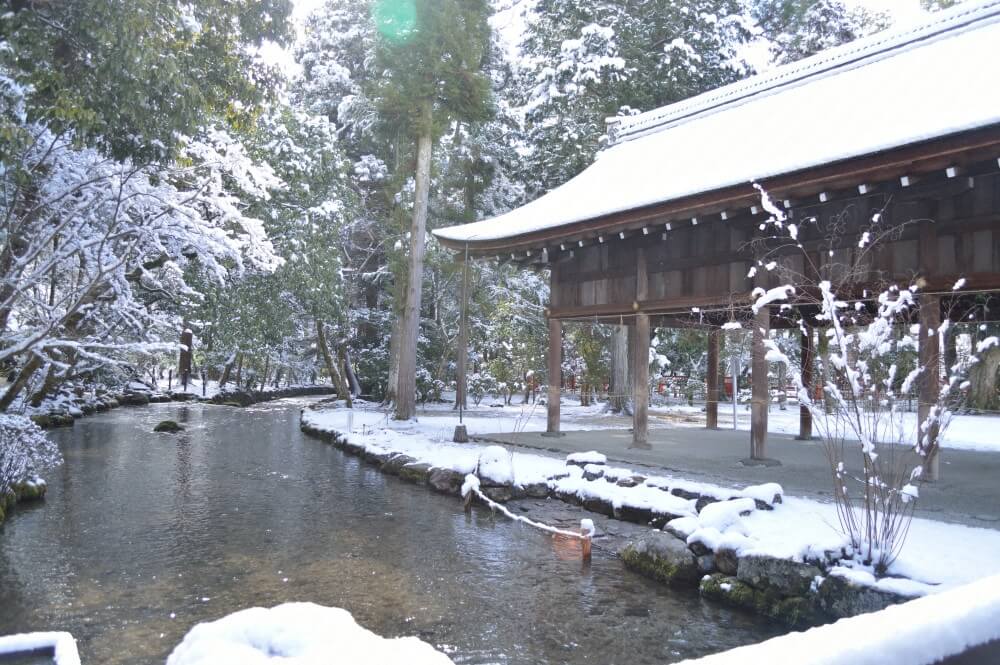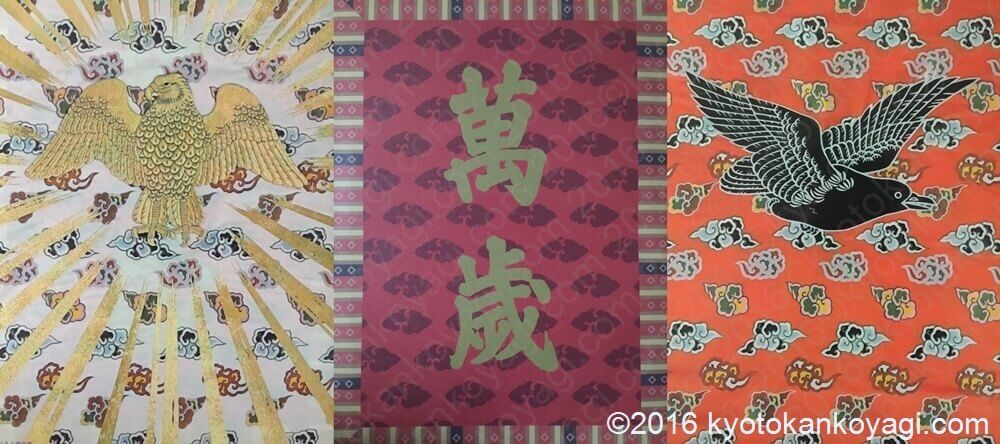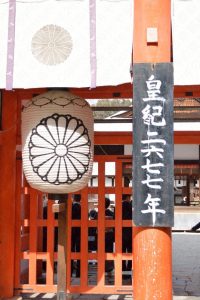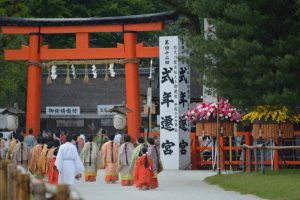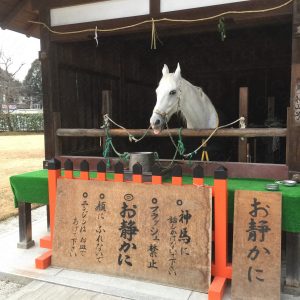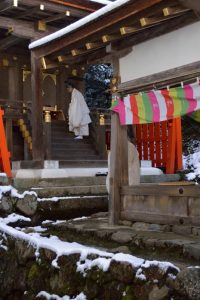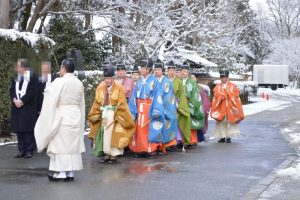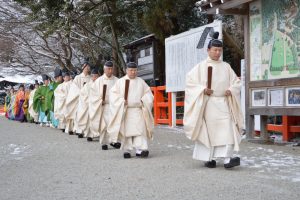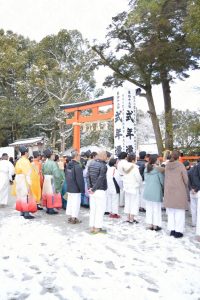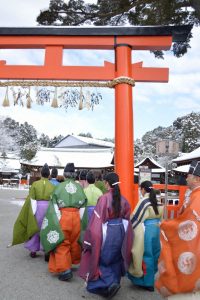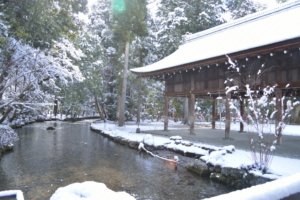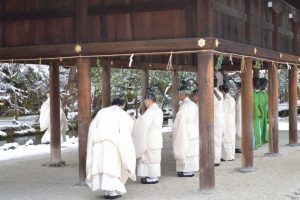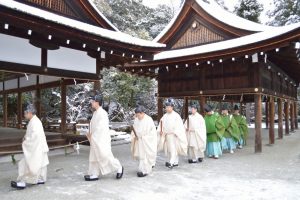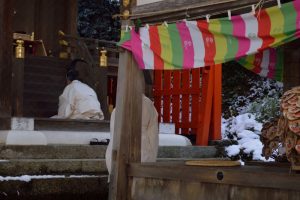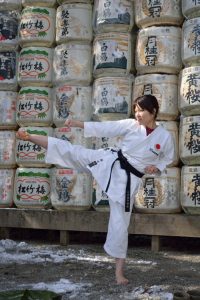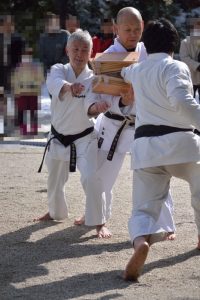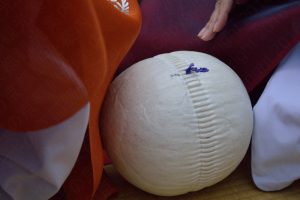皇紀2685
Kigensai at Kashihara Jingu shrine. May all the people be in peace. 合掌
What is Kigensai (紀元祭)?
“Kigensai” is a ritual to cerebrate the foundation of Japan. On January 1, 2026 D.C., Japan has 2,686 years of history. In the Japanese Imperial year, this year is “Koki 2686(皇紀二千六百八十六年).
In Japanese mythology, it is believed that the begging of Japanese history dates back to the enthronement of emperor Jimmu (神武天皇), the first emperor of Japan, at Kajihara Jingu shrine (橿原神宮) in Nara prefecture in January 1, 660 B.C.. January 1 on the lunar calender at that time is the same day February 11 in Gregorian calender.
On that day, many shinto shrines hold Kigensai all around our country. In this article, let me show you the Kigansai at Kamigamo shrine.
Kamigamo shrine (上賀茂神社)
Kamigomo shrine is one of the oldest shrine in Kyoto. Its formal name is “Kamo Wake Ikazuchi Jinja (賀茂別雷神社). “Kamigamo shrine (上賀茂神社) is a de facto name of the shrine. Its history dates back at least 7th century . It is some 100 years before “Heikan kyo (平安京)”, the ancient name of Kyoto, was established as the capital of Japan.
In 1994, UNESCO adopted the shrine on the list of the world heritage site as one of a historical monuments of ancient Kyoto.
Kamigamo shrine is always in family atmosphere though its universal cultural value. Lots of tourists visit historical sites in Kyoto everyday but many of them pay scarce visit here. You can see the neighbors spend good times in “Keidai (境内, a field of shrine)”.
Every week end, a white horse catches your eyes. He (It is a male horse.) is “Koyama-go (神山号)”, the “Shinme (神馬)” of the shrine. He is named after “Koyama (神山)” the mountains worshiped as the “Goshintai (御神体)” of the shrine. Goshintai is a object to which Shinto Kami (Kind of God) descends. Mt. Fuji is the most famous Goshintai in Japan.
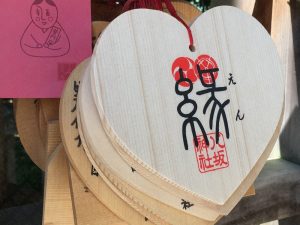
Shinme is a steed for Kami offered by people to shrine as a dedication. These days, it is so hard to keep and offer horse financially for shrines and believers that Shinme is turned into “Ema (絵馬)” instead. Because of these difficulties, only around 10 shrines keeps Shinme in Japan.
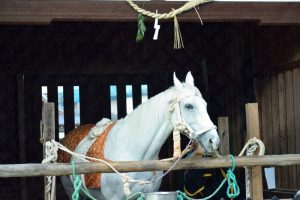
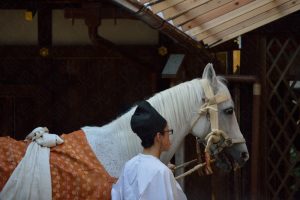
On January, priests bring Shinme to the main hall of the shrine to let Kami see him. It is “Hakuba soran shinji (白馬奏覧神事)”, the ritual to drive away evil spirits.
The most peculiar thing in Kamigomo shrine is that the shrine has two main buildings. Shrine has only one main building usually. Kamigamo shrine has a main building and its substitute. The substitute is used in case of emergency. This construction of a shrine is hard to find in other shrines. The building which has stairs in the picture above is not a main building of Kamigamo shrine but that of sub-shrine of Kamigamo shrine. We are not allowed to take pictures of it.
Kigensai at Kamigamo shrine
The Ritual
Around 10 p.m., Shinto priests and “Kemari Players” gather around outside of the shrine.
They move to a “Torii” gate.
In front of the gate, priests and people sing national anthem “Kimigayo (His Majesty”s Reign)” and Kigensai starts.
They are getting into the field of the shrine. Stunning colors in snow.
Chief priest purifies the other priests in front of a river.
They head for a main building of the shrine.
(This is not a main building. It is prohibited to take photo of it. The picture above is a sub-shrine of Kamigamo shrine.)
A priests sit in front of a main building and say prayers and Kigensai goes on…..
Karate Dedication
Outside of the building, Karate is dedicated to Kami. The woman shows off “Kata”(Form) of Karate. There are barrels of “Sake” behind her. They are also dedications to Kami. Shinto has close relationship to rice cultivation. The man punches seven layers of wood boards.
Kemari dedication
“Kemari (蹴鞠)” is an ancient ball game introduced from china around 5th century. It became popular among aristocrats in Heian period (from 794-1192 D.C.).
It has no winner or loser. Players kick ball each other as long as possible with grace. For more information, visit the link below.

On the day I shoot the video, it snowed occasionally. It is very rare footage. Enjoy it!
How to get to Kamigamo shrine?
Kyoto city bus: Kamigamo Jinja mae or Kimigamo Misonobashi bus stop

